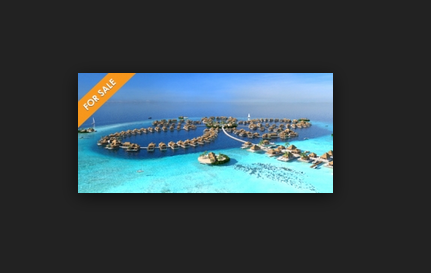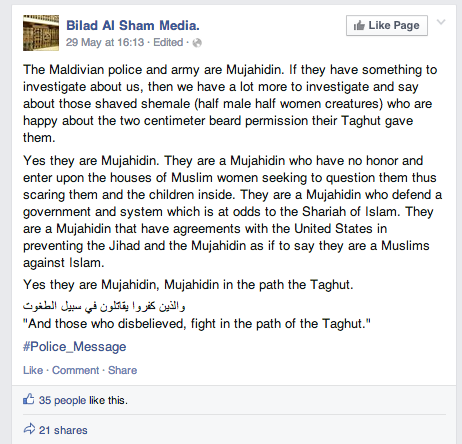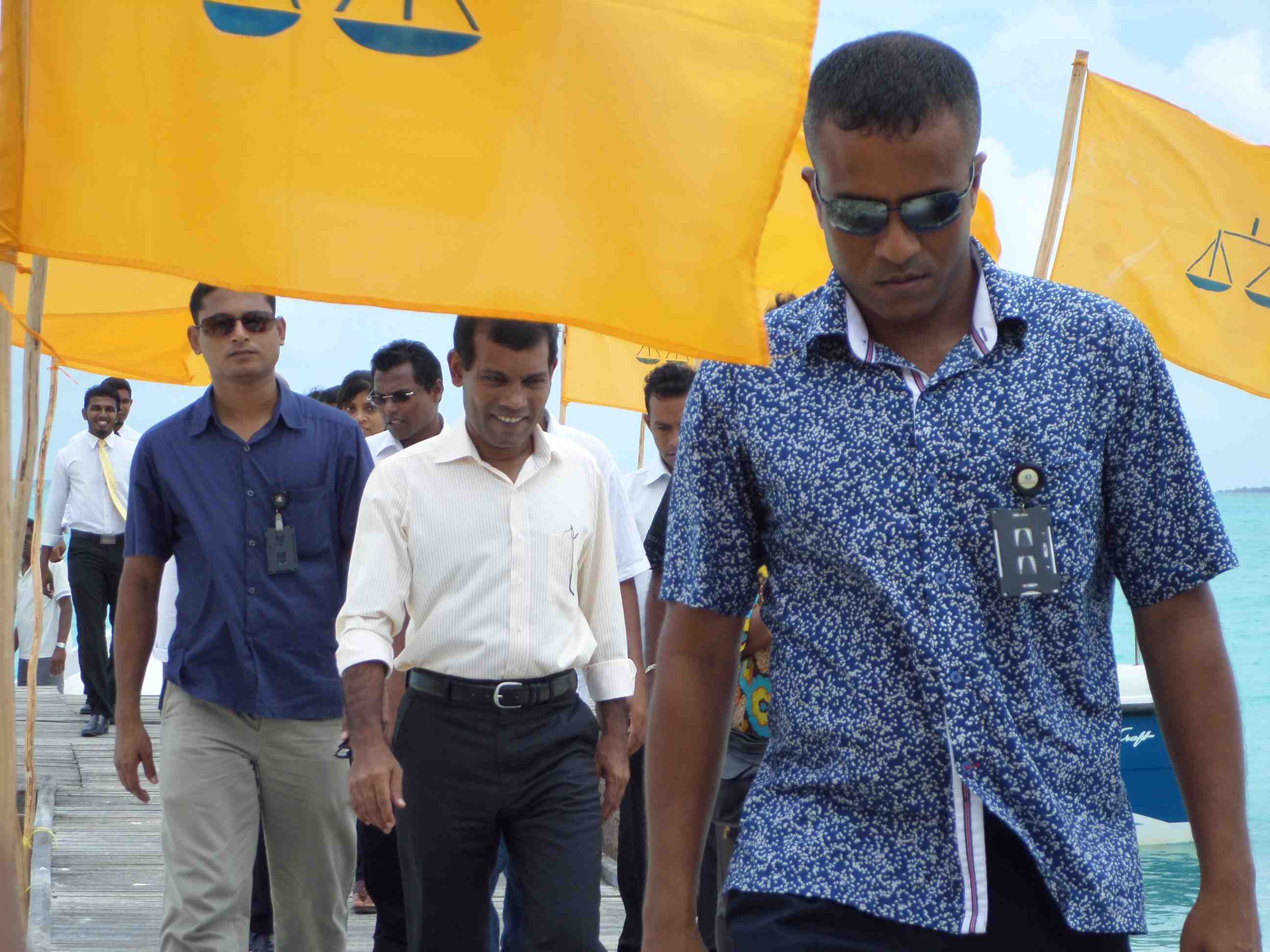The scramble for Maldives

by Mushfique Mohamed
The political changes that marked Maldives’ transition to democracy have not translated into equal distribution of wealth or access to basic public services such as clean water, health care, electricity, waste-management and sewage systems, throughout the country. The rapid political changes and crises experienced in the past decade has done little to confound the popularized image of the Maldives as a hedonistic paradise for tourists, despite being considered ‘one of the most miserable countries in the world’ for its own citizens. Continuing this story of two Maldives: the real and the represented, the Yameen government has submitted the Special Economic Zones (SEZs) Bill to the People’s Majlis. In doing so, the government is attempting to sell the illusory tale that liberalisation of trade by autocrats – granting incentives to multinational corporations (MNCs) – trickles wealth down to ordinary citizens.
President Abdullah Yameen Abdul Gayoom, brother of former strongman Maumoon Abdul Gayoom, announced plans to develop SEZs in April 2014 at an investor forum held by the Maldivian government in Marina Bay Sands, Singapore. Notable investors such as US company Blackstone (which acquired a controlling interest in Maldivian Air Taxi “MAT” and Trans Maldivian Airways “TMA” in February 2013), Singapore-based HPL Hotels and Resorts, China Machinery Engineering Corporation (CMEC), the Carlson Group of Companies, Pan Pacific Hotels and Resorts, United Bunkering and Trading Group, and Singapore Enterprise were present at the forum.
The SEZs bill entails demarcation of specific geographic areas into zones where special customs regime and laws apply for investors and developers. Developers’ Business Profit Taxes (BPT) can be exempted, and Goods and Services Taxes (GST) are exempted initially for ten years, and can be withheld or exempted for additional years if the SEZs board allows. Shareholders are exempt from paying BPT on their dividends, and tax relief can be afforded to developers through special procedures by the SEZs board. The SEZs board can also lease land in the Maldives to foreign companies for up to ninety-nine years and Maldivian companies are exempt from tax when acquiring ownership of land.
The SEZs defined under the bill include the following: Industrial Estate, Export Processing Zone, Free-Trade Zone, Enterprise Zone, Free Port, Single Factory Export Processing Zone, Offshore Banking Unit, Offshore Financing Service Centre, and a High Technology Park (Articles 9-18). Government officials have echoed Singapore, Hong Kong, Oman, Qatar and Dubai as examples of SEZs stimulating foreign direct investment. China and India have been touted by the World Bank as proof of economic growth through introduction of liberal economic policies and legislations such as SEZs. Gradually, China and India began to structurally transform its economies in the 1980s and 1990s respectively, with its GDP growing at an annual average rate of 10% and 6% over the past two decades. In the case of China and India, although SEZs are associated with trade liberalization, studies have shown that it does not always result in human development, economic growth or liberalization of domestic markets (Leong 2013).
Speaking to the media in June 2014, the Minister of Economic Development Mohamed Saeed likened existing tourist resorts to SEZs, possibly to suggest how potentially profitable these policies could be. Contrastingly, the recently published second Maldives’ Human Development Index report by the United Nations Development Project affirms that despite being lucrative and effective at enabling economic growth, the luxury tourism industry has not alleviated socio-economic inequalities, but rather contributed to it. Speaking to local news website Minivan News, Tourism Minister Ahmed Adheeb defended the bill claiming that it is in line with decentralization, and that it will shift the focus away from the densely populated capital Malé.
However, a Facebook Community named The Maldivian Economist – a forum where economic and financial policies are discussed – has published a detailed refutation of the notions put forth by the government regarding the SEZs bill. The Maldivian Economist notes that the bill takes power away from the people – local government and elected officials, concentrating wealth under a “centralized autocratic government.” Although the bill purportedly aims to limit Maldives’ reliance on tourism income, it provides additional import duty, tax and foreign labor concessions specifically for hotel, tourism-related, and real estate businesses.
Primarily, the Bill aims to run nine types of SEZs. But the 17-member SEZs board called ‘the Board of Investments’ – made up of unelected government officials, including two presidential appointees – decides how many zones, and of which types would be set up across the Maldives (Article 22). The bill affords the SEZs board the discretion to extend incentives, such as tax relief or increase the allocation of expatriates and migrant workers upon request. If the bill is enacted, it will prevail over existing laws (according to Article 80(b), 14 existing legislations to be exact) and regulations made prior to it. Only special SEZ ‘facilitating’ regulations made by relevant governmental authorities, decisions and regulations made by the SEZs board, obligations cited under the developer’s permit, and terms and conditions stipulated under the investment agreement or concession agreement would be applicable within any SEZ (Article 33(b), Article 70).
Although the bill states that discussions shall be made between councilors, and that the Chairperson of the SEZs board and the Minister of Economic Development shall be answerable to the parliament, it does not afford government oversight any decision-making powers. All the decision-making powers with regard to which investors attain development projects and which areas are designated SEZs is vested with the SEZs board and the President. The SEZs board also decides which existing tourism related businesses could be relocated into an SEZ. (Article 74(c)). Under an authoritarian government, the SEZs board would end up assuming overwhelming wealth through developers, and in the absence of competition laws invisibilize local fishermen and entrepreneurs who call these SEZs home.
Once the President demarks an area as an SEZ, even if it currently belongs under the authority of a local council, its authority is transferred to the Ministry of Economic Development, as per Article 33(a) of the Bill. The Maldivian Economist states that this allows “all the revenue to bypass local councils and go into the state budget.” Article 37(b) of the bill states that if a development project aims to relocate island communities to the area being developed, the SEZs board has the discretion to grant the developer additional incentives.
The concession agreement with GMR Malaysia Airport Holdings consortium and the Nasheed administration signed in June 2010 to develop and run Malé international airport, was the largest foreign direct investment in the Maldives. The coup regime of Dr Mohamed Waheed Hassan Manik, which included members of the current government expelled India’s GMR citing ‘void ab initio’, but used religious rhetoric and an ultranationalist anti-India campaign to drive home the now debunked legal argument. Due to the xenophobic GMR fiasco, it seems as if an entirely different government has submitted the SEZs bill, ready to embrace the globalized world economy.
The opposition Maldivian Democratic Party has dubbed the bill, “the Artur Brothers bill”, invoking top government officials’ links to famous Armenian gangsters, and possibility of increased money laundering due to offshore financing.1 Resonating sentiments of SEZs critics, Salma Fikry, one of Maldives’ foremost experts on decentralisation and development, told Minivan News last week that, “it [SEZs bill] is not sustainable nor empowering for the Maldivian population.”
Canadian author Naomi Klein’s book “the Shock Doctrine: The Rise of Disaster Capitalism” is a literary indictment of the radically liberal free-market policies introduced by economists trained at the Chicago School of Economics. In her view, policies espoused by Milton Friedman and his protégés world-over have historically exploited crises: “wars, terror attacks, coups d’état and natural disasters” in the developing world.
Post-tsunami opportunism during Gayoom’s dictatorship is also mentioned in Klein’s well-researched hypothesis. Following the 2004 Tsunami, with funding from the World Bank and other international bodies, the Maldivian government announced the Safe Island Program in order to relocate island communities. Klein argues that the regime was merely “freeing up more land for tourism.” This argument is convincing as she notes, “in December 2005, one year after the tsunami, the Gayoom government announced that thirty-five new islands were available to be leased to resorts for up to fifty years.”
To a certain degree, the SEZs bill is similar to the Safe Island Program; it glorifies “the blank”, a country with special privileges and policies for MNCs and foreigners, void of its inhabitants. As the Maldivian Economist has noted, in the Maldivian context of escalating socio-economic disparities, and corruption within the judiciary, government and parliament, this bill will not enable the human development it envisions. Instead, it solely empowers the government and corporations associated with it. These policies will do more harm than good to a small economy such as the Maldives, which does not have any existing legal barriers to foreign direct investment.
 They were recently told the same thing by hardline Salafi preacher Sheikh Adam Shameem Ibrahim (
They were recently told the same thing by hardline Salafi preacher Sheikh Adam Shameem Ibrahim (
